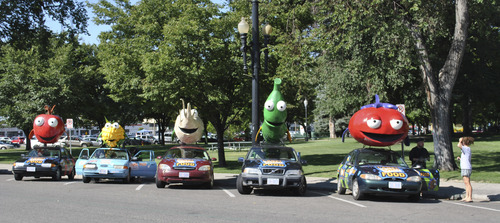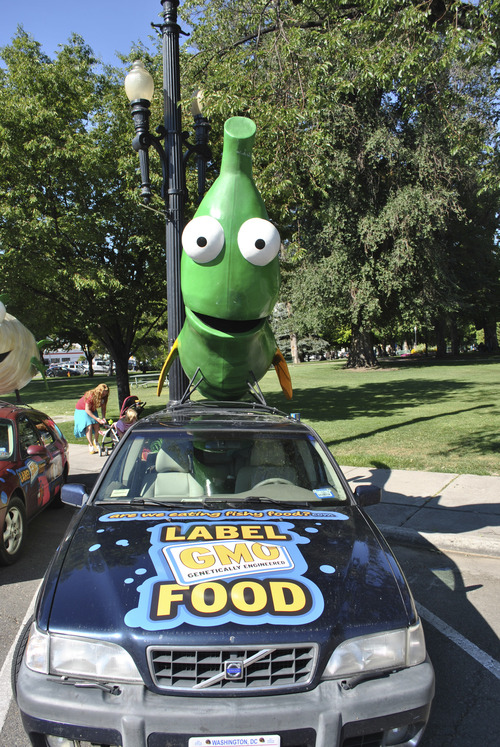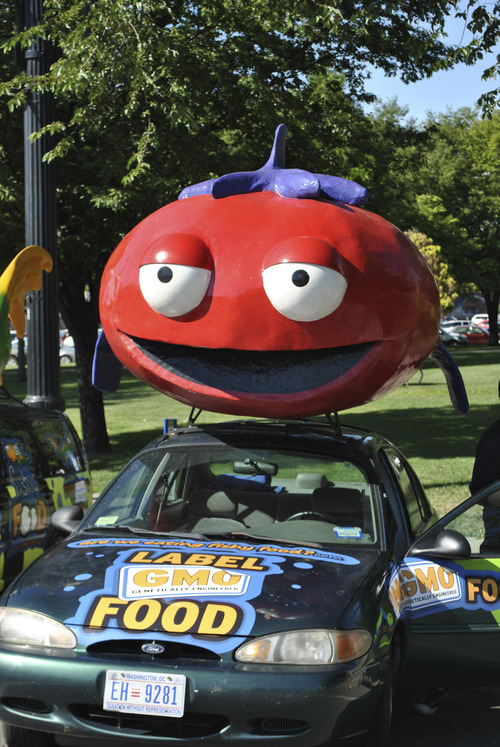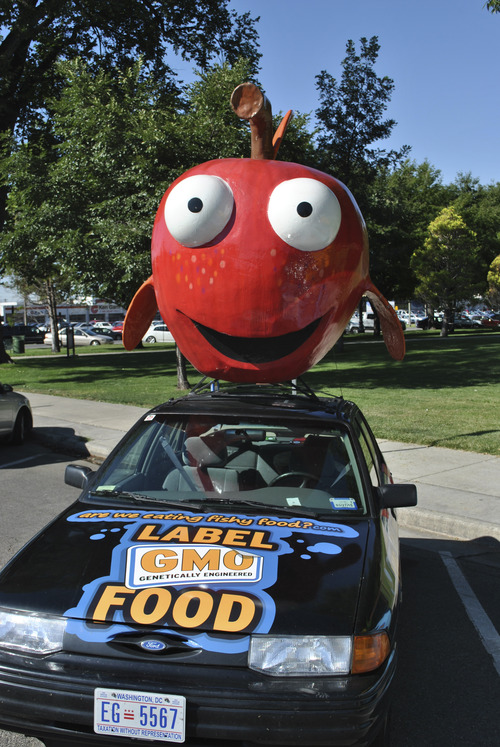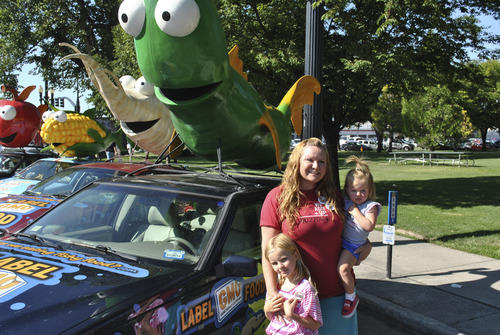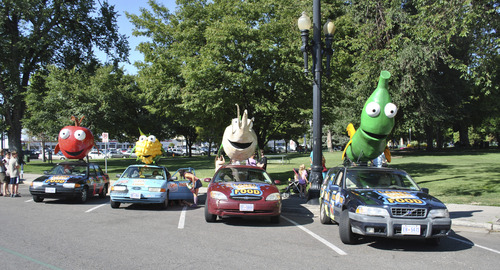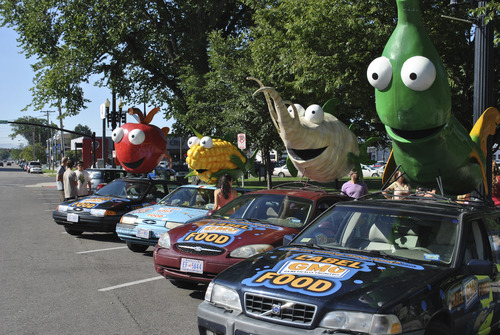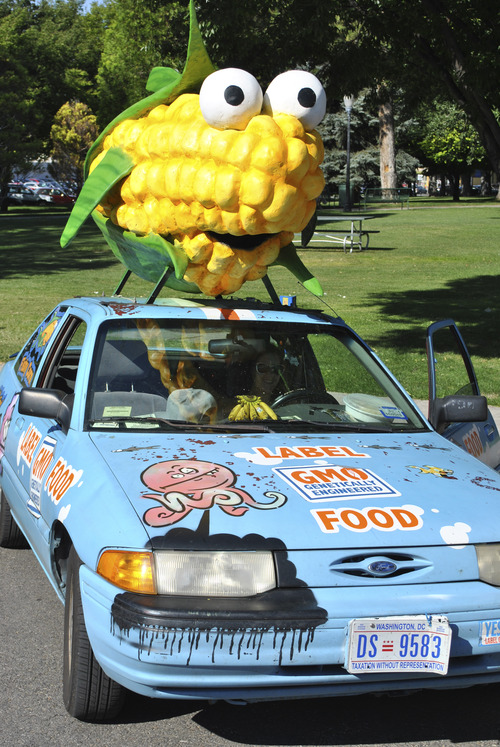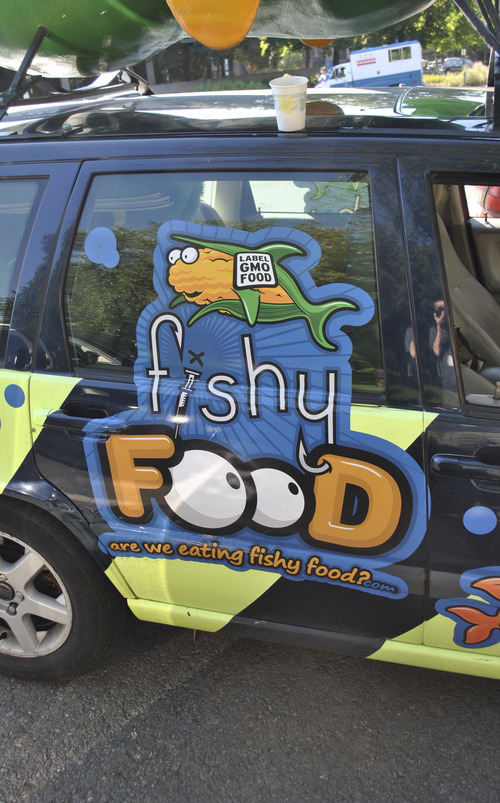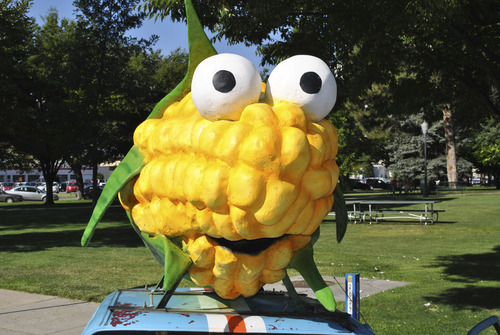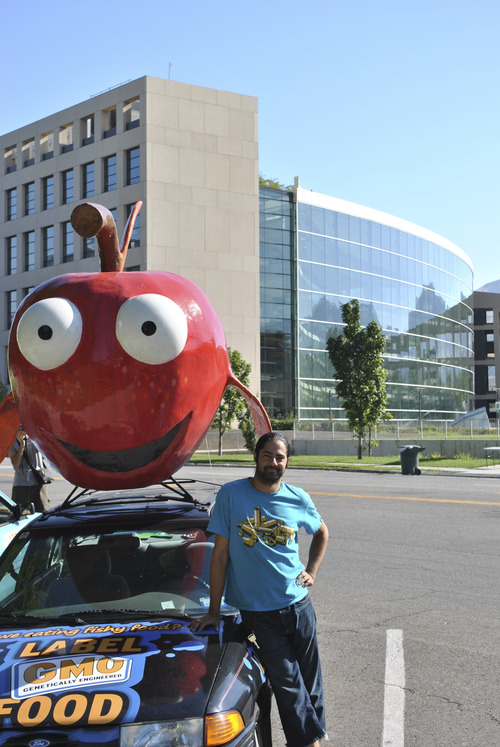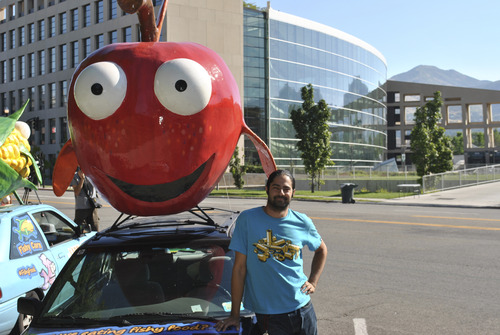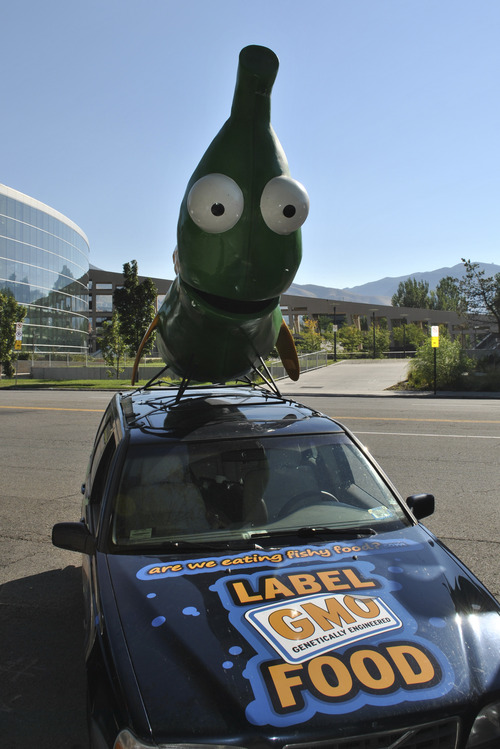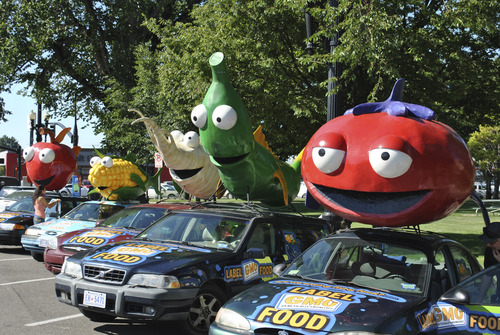This is an archived article that was published on sltrib.com in 2013, and information in the article may be outdated. It is provided only for personal research purposes and may not be reprinted.
Apparently, there's no real trick to driving with a 4-foot-tall apple-fish on your roof. Just be wary of drive-by photographers.
Activist Nikolas Schiller drives Goldie, a Ford coupe that carries piggyback a cartoon sculpture made from welded steel, chicken wire, paper, fiberglass and glaze. The extra weight restricts gas mileage, but Schiller says Goldie's got a bigger problem than her road readiness. Goldie is "fishy," like the genetically manipulated "Arctic Apple" that never browns and is currently awaiting USDA approval.
Nineteen activists who oppose genetically engineered (GMO) foods brought their Fishy Food fleet to Library Square on Tuesday morning, drawing a handful of local activists and curious looks from passersby. The group, formerly known as Occupy Monsanto, is on a 3,300-mile cross-country tour from Washington, D.C., to Seattle to deliver the cars at Seattle Hempfest and support Washington state's Initiative 522 to mandate labeling of GMOs.
GMOs have become an increasingly hot-button issue, even though the federal government and many scientists have found no evidence that the technology is unsafe.
Occupy's previous demonstrations against Monsanto include a 2011 march from New York to Washington and civil disobedience. Fishy Food is an attempt to cultivate a more likable popular image. The five cars feature child-friendly structures designed by former architect Cesar Maxit and a variety of grass-roots volunteers — besides Goldie, there is Poppy, the corn; Rooty, the sugar beet; Soja Girl, the soy bean; and K-Sup, the tomato. DaVeat, a genetically modified bagel-fish (in "poop brown and fuchsia") is in production.
"People are already on our side, we just need more people to know that they're on our side," says D.C. native Jazmin Rumbaut, who takes turns at the wheel of the sugar beet. "It's actually kind of funny that we have to do something so goofy to bring attention to something that is so reasonable."
Many in the group were anxious to meet Farmington resident Tami Canal, 31, who organized the international March Against Monsanto in May. Canal credits her daughters Jenna, 7, and Charlotte, 20, for inspiring her to take a stand against GMOs, and said she'd join Occupy Monsanto on the cross-country tour if she didn't have to take care of her kids.
"I think these people are warriors," Canal says. "I think it's incredible what they're doing. They're sacrificing comfort and being away from their own families to spread this awareness."
Opposition to GMOs is based on what activists say is a lack of research and awareness of genetic engineering, which is largely done to make crops more resistant to pesticides. In the case of the Arctic Apple, engineering would keep apples on store shelves much longer and reduce waste.
One of the activists, Adam Eidinger, is a Monsanto shareholder who has presented a measure to conduct an organic liability study at previous shareholder meetings. Eidinger announced last week in St. Louis at Monsanto's company headquarters (the only place the Fishy Food fleet got a "thumbs down," Eidinger says) that he has introduced a new shareholder proposal to label GMOs. He expects it to fail, but says Securities and Exchange Commission regulations dictate that shareholders will have to provide, in writing, a reason for rejecting the proposal.
March Against Monsanto organizer Kimberly Casey from Salt Lake City says that soon activists will try to pass their own referendum on labeling at the municipal level in Salt Lake City.
"If they're so proud of their product, label them," Canal says. "That would really take a lot of the momentum out of our movement."
Twitter: @matthew_piper


